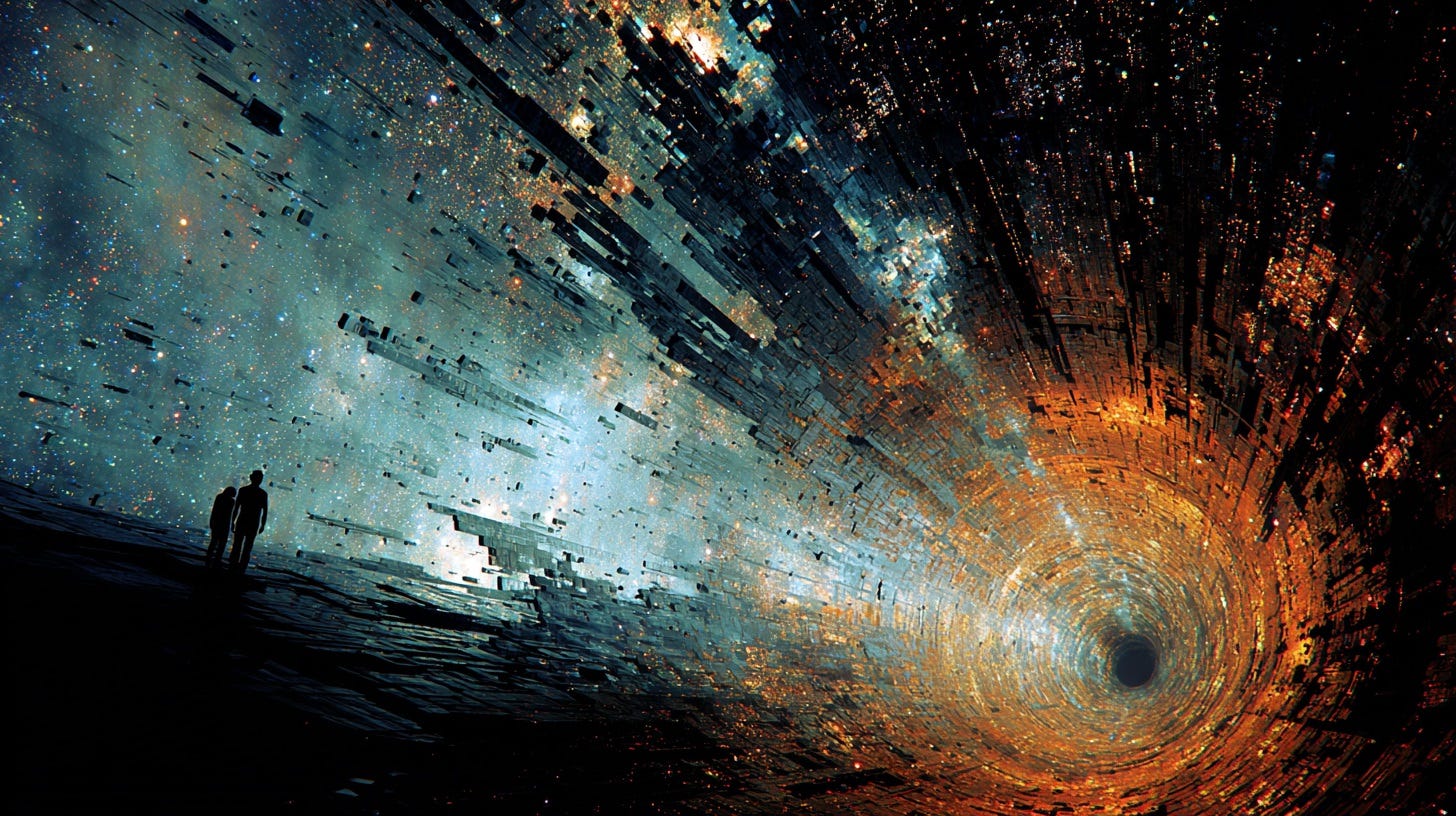⤴🎞 The 7 most Up Wing films of the 21st Century
At least among those landing on the buzzy New York Times list of the century's best movies so far
My fellow pro-growth/progress/abundance Up Wingers,
“Best film” rankings are inherently an exercise in cinematic subjectivity. And we love them anyway.
The New York Times’ version of this high-end click bait is a prestige poll where it asked 500 influential people in the film industry — including Oscar-winning directors like Pedro Almodóvar, Sofia Coppola, Barry Jenkins, and Guillermo del Toro, plus acclaimed actors like Chiwetel Ejiofor and Julianne Moore — to vote for their top 10 movies released since January 1, 2000. The newspaper compiled all the votes into a ranked list of the 100 best movies of the 21st century, releasing them in batches of 20 every day this week.
From that list of 100, I picked the most Up Wing films — broadly, movies that envision human progress through innovation or resilience, and highlight our can-do capacity to solve big problems and build a better, more abundant future — that immediately jumped at me. Most were science fiction, but not quite all.
🚀 7. Gravity (#97)
In space, no one can hear you scream, but that doesn't mean you shouldn't take the trip. Gravity begins with calamity in low-Earth orbit: a cascade of debris obliterates a space shuttle. Ryan Stone, a biomedical engineer on her first flight, is left alone and untethered. (NYT: "Alfonso Cuarón's action film is one of the 21st century's greatest thrill rides.") Stone survives by maneuvering damaged capsules, hotwiring computer systems in foreign languages, and using every bit of orbital infrastructure to improvise a path home. The film never downplays the dangers of the void. But it refuses to treat peril as an argument for retreat. Stone begins lost and grief-stricken from personal tragedy. She's drifting even before the disaster strikes. By the end of Gravity, she crashes to Earth, crawls from a lake, rises from the mud, and takes a shaky step forward — an unsubtle but tremendously powerful evolutionary metaphor. Humanity, like Stone, stumbles upward. In contrast to dystopias that cast ambition as hubris, Gravity affirms that resilience and progress are inseparable. Yet survival isn’t enough. One must stand and walk forward, sometimes in small steps, sometimes with giant leaps.
🐈 6. Black Panther (#96)
Black Panther is an Up Wing film wrapped in superhero spectacle — not because of its magical, meteoric metal, but because of the mindset that drives Wakanda: a fearless commitment to progress. The Wakandans aren't limited by their good fortune to inherit a giant lump of vibranium; they're energized to make the most of it. Their technology is constantly evolving as they determine what the next "best thing" is: whether it's kinetic energy suits, flying cars, or magnetic trains, their society shows what can happen when a culture embraces innovation and keeps pushing forward. (NYT: "Wakanda, the Afrofuturistic realm where the story takes place, is a visual wonder.") Wakanda enjoys the planet's highest standard of living, but this prosperity raises a difficult question: Should their economic and technological success remain hidden behind closed borders or should be shared globally? T'Challa's decision marks a shift from isolationism to a globalization-minded vision. The film reminds us of our potential, and that the future is ours if we choose to build it.
🌌 5. Interstellar (#89)
Interstellar superficially appears dystopian and Down Wing. Yet it actually offers sweeping affirmation of scientific ambition, resilience, and the belief that humanity’s story is far from over. Earth is dying — not because of late capitalism or climate change or some such, but because we stopped striving. Schools teach that the Moon landing was a hoax. MRI machines have vanished. Spacefaring has been displaced by near-subsistence farming. But Cooper, a grounded astronaut turned reluctant farmer, refuses the quiet extinction of fatalism. Instead, he climbs into a spacecraft, dives into a wormhole, and traverses the edges of physics and love. (NYT: "Christopher Nolan's dazzling, ambitious space epic is a puzzle that even today remains mind-bending, mirroring how little we understand about where we are in the universe and why we exist.") Thankfully, the film never moralizes about the causes of the blight. It urges progress rather than scolding about failure. In Nolan's vision, survival is achievable through sacrifice, reason, and risk. Interstellar insists that humanity wasn’t meant to die on this world. Our destiny lies above.
Keep reading with a 7-day free trial
Subscribe to Faster, Please! to keep reading this post and get 7 days of free access to the full post archives.







